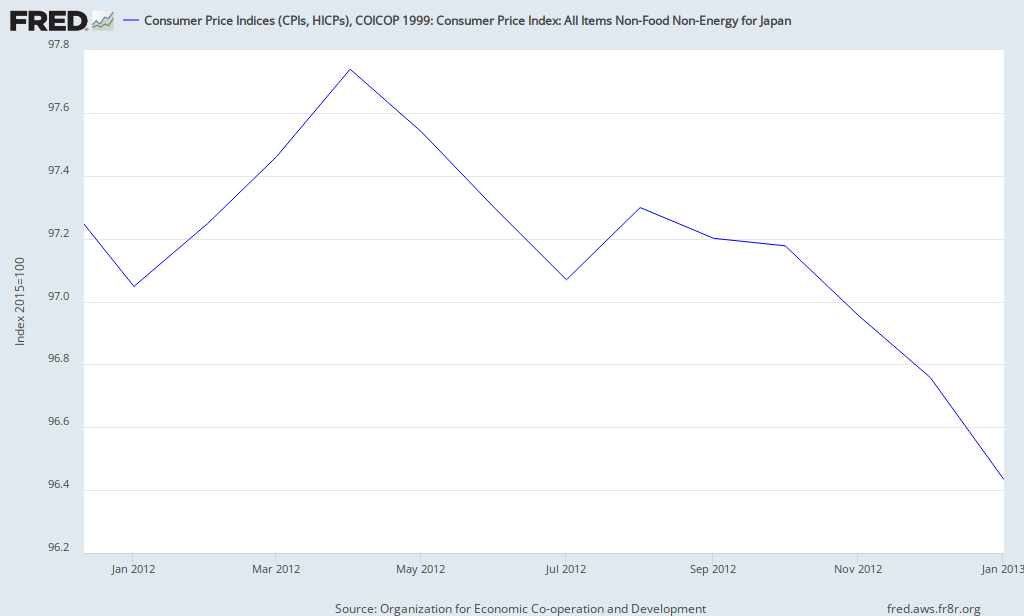
So how is Abenomics doing?
Well, on the plus side, there have been two pronounced effects. The first is the aforementioned stock market rally. Here is the Topix (similar to our S&P) over the last 3 months:
And here is the yen/dollar over the same period (higher means weaker yen):
So as you can see, Abe's election has sparked a rapid depreciation of the yen (which should, theoretically, boost Japan's exports), and a rally in the Japanese stock market.
So that's the good news. Here's the bad. Since Abe's election, Japan has slipped back into deflation:

But inflation expectations, as measured by breakevens on the Japanese version of TIPS, are up - to 1%. So maybe we'll see this deflation turn around soon.
As for Japan's current account, it has continued to log a deficit, as the weak yen made imports more expensive. As for whether or not export demand will pick up...I guess we'll see. Capital expenditures by Japanese firms were still falling in December, but we'll just have to wait for more recent data.
In summary: Abe seems to have shifted a lot of people's expectations. He seems to have convinced many foreigners that Japan will print a lot of money; this has caused a fall in the yen. And those expectations of a falling yen seem to have convinced many foreigners that the weaker yen will boost the profits of Japanese companies, since foreign investors are behind Japan's stock market rally. And he has also convinced some Japanese people that deflation will soon give way to weak inflation...though these expectations have not yet translated into real inflation.
But now comes the real test. Convincing foreigners that big changes are coming to Japan is an easy trick, but it won't help Japan's economy a lot. The shift to 1% inflation expectations is more promising. But 1% is still pretty darn low.
Yet I still stand by my initial evaluation - Abe is generating a brief fillip of optimism and a sense of economic movement in order to secure an LDP majority in the all-important upcoming upper house election. Securing that majority would allow him to get on with his true all-consuming priority - revising Japan's constitution. After that, his conservative instincts, and the conservative instincts of the Finance Ministry (which is arguably a lot more powerful than the Prime Minister), will take over, as will the worries of the LDP's elderly voters that inflation would destroy their hard-earned life's savings. At that point, talk of radical monetary reform will evaporate, and the recent movements in the yen and the Japanese stock market will begin to slowly unwind.
This is a pessimistic scenario, but, like Japanese consumers' expectations of deflation, my beliefs about the effectiveness of Japan's Liberal Democratic Party are strongly anchored, and will require more than a bit of tough talk to dislodge.
Tidak ada komentar:
Posting Komentar